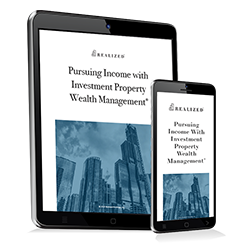
A distribution from a retirement plan occurs when the account owner withdraws money from the retirement account. Depending on the retirement plan, the IRS can consider these distributions taxable income.
What Are Some Different Types of Distributions?
There is a lot to learn when it comes to distributions, but here are a few common types of distributions:
- Qualified Distributions are when the account owner withdraws funds from a Qualified Retirement Plan recognized by the IRS.
- Normal distributions are when money is distributed after the official retirement age stated in the plan, usually 59.5.
- Early distributions are withdrawals taken before 59.5. Generally, early withdrawals have penalties. Some plans waive penalties up to a certain amount based on things like disability or foreclosure.
- Required minimum distributions (RMDs) are mandatory for tax-deferred plans once the account holder reaches a certain age, usually 72. The RMDs are mandatory monthly payments made from the account.
- Periodic distributions include pension and annuity payments paid regularly to the account holder. For example, a monthly pension check is a periodic distribution.
- Non-periodic distributions are one-time lump sum payments from an employer-sponsored plan.
What Happens When I Hit Retirement Age?
When you reach retirement age, there are different options for managing your retirement distributions. While all plans are different, and it is important to look at the specifics of your individual plan, here are some scenarios of distributions:
Keep Your Money Working
If you are retiring, you usually have the option to keep your retirement account with your employer’s plan. This ensures a seamless transition into retirement and that your funds remain in a tax-deferred account.
There are also options to roll a retirement plan into a different plan altogether. For example, if you leave an employer for your next job, you can usually roll over funds from plans like a 401(k) to your new employer. You can also put your benefits into an Individual Retirement Account (IRA).
Take A Lump Sum
After retirement age, there is sometimes the option to take a lump-sum payment from a retirement account. This can be useful if cash is needed immediately. If this is done before retirement age, there is usually a penalty.
What Taxes Are Owed for Retirement Distributions?
The tax implications depend on the type of plan, but here are a few of the common plans and how taxes might be impacted:
- Traditional 401(k) - all distributions are subject to income taxes. You can take penalty-free distributions once turning 59.5.
- Roth 401(k) - If the distributions are qualified distributions, they might be tax and penalty free if the taxpayer is 59.5 and they made the initial contribution at least five years prior to the distribution.
- ROTH IRA - Distributions are usually tax-free if the first contribution was made over five years ago and the taxpayer is 59.5 or meets certain exceptions.
Meeting with a tax or financial advisor is the best approach to dealing with retirement account distributions.
This material is for general information and educational purposes only. Information is based on data gathered from what we believe are reliable sources. It is not guaranteed as to accuracy, does not purport to be complete and is not intended to be used as a primary basis for investment decisions.


